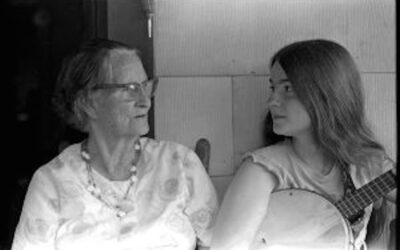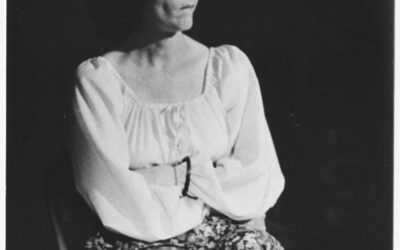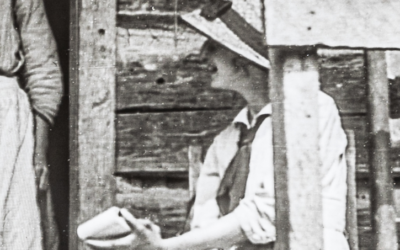Leola Manning grew up singing the sacred songs she heard at home from her mother, later performing as an “evangelical street singer.” She recorded two religious songs at the first Knoxville Sessions in the summer of 1929 – unlike the 1927 Bristol Sessions, the focus in Knoxville wasn’t only on hillbilly music, and these sessions captured hillbilly, blues, and jazz songs. Leola recorded in Knoxville again in 1930, but this time she brought her own songs, ones that connected to the blues but highlighted topical and moral issues. “The Arcade Building Moan” was a song about a contemporary explosion and fire that killed four people, while her “Satan is Busy in Knoxville” was possibly based on two murders in East Knoxville. She recorded two other songs in 1930 – “Laying in the Graveyard” and “The Blues Is all Wrong.” Leola spent the rest of her life as an evangelist with her husband; she continued to write songs for that work rather than for commercial performances.
Sheila Kay Adams
Sheila Kay Adams is a seventh-generation ballad singer, banjo player, and storyteller. Her family’s long line of musical and storytelling traditions reaches back two centuries to the original English and Scots-Irish settlers of Sodom Laurel, North Carolina. The...




